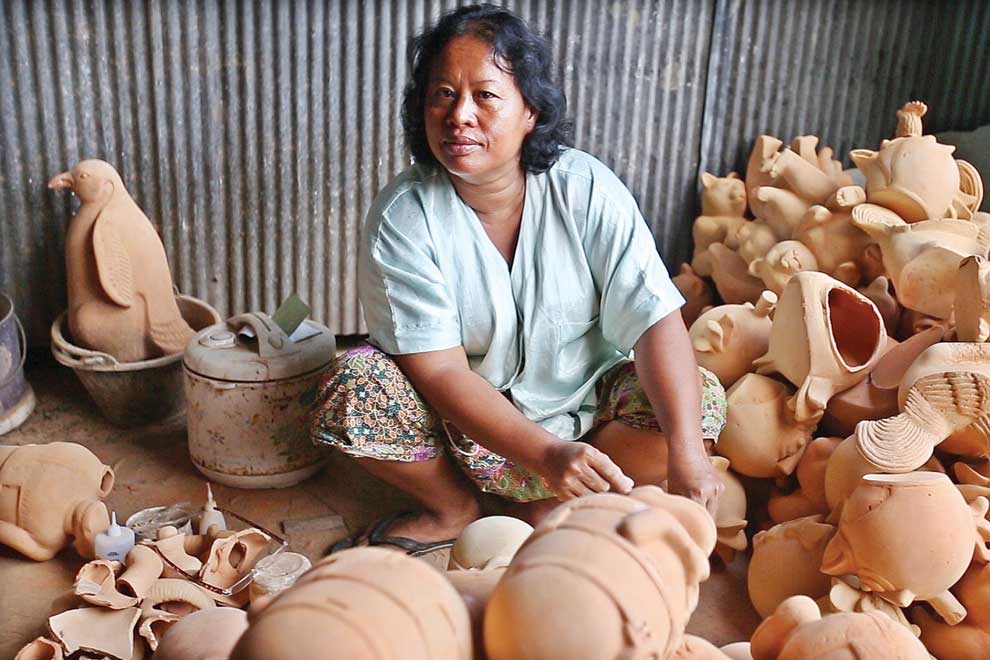
Ong Pisey poses with some of her unfinished banks. Keo Ratana
For tourists in Siem Reap who seek out things to do after visiting Angkor Wat and the markets, and want a closer look at Cambodian society, tours of the countryside are not a bad idea. One recent stop added to some tours is a trip to a piggy bank workshop to watch first-hand how they are crafted.
Ong Pisey, 53, has made a living from making piggy banks for more than a decade in Kravan village, in Siem Reap’s Angkor Thom commune. She sees tourists visiting her shop every day because they are attracted to her beautifully crafted products.
While the pig has been a traditional shape for money-saving boxes used by children all over the world, those on display at Pisey’s shop include many other designs, such as those of the 12 zodiac signs, and cartoon characters including Minions and Angry Birds. But the pig still remains a tourist favourite.
“Most of my products are piggy banks for saving money. However, most people buy the elephant-shaped ones for decorative purposes. The elephant banks are still made in the 19th-century style,” Pisey says, adding that she charges $1.25 to $3 for her products.
To supplement her income from selling piggy banks, she also receives some money from tourists who visit her shop, most of whom are brought by Butterfly Tour, a local tourist agency.
“I teach them how to make piggy banks – beginning with shaping the clay to painting those brought out of the oven,” Pisey says.

Ong Pisey’s piggy banks on display at her shop. courtesy of butterfly tours
Sok Heng, the executive director of Butterfly Tour, says her agency began including piggy bank workshops as a destination for clients who visit Siem Riep, Battambang and Kampot provinces as she wanted them to try making the products and buy some as souvenirs.
“Our clients are mostly from the US and European countries, and enjoy such tours, which have many other activities as well,” he said.
The workshops welcome guests in groups of seven or less as part of larger tours organised by Butterfly, says Heng.
“During the high season, from October to March, we arrange two groups a day. In the low season, we normally have just one group in the morning,” she says.
A half-day group tour, which includes the use of a motorcycle and a guide, costs $27 per person. A whole-day tour, which includes a lunch, costs $48 each.
However, an overnight tour, which includes two meals, a cooking class and the homestay costs $63 per person. Besides the piggy-bank workshop, groups are also taken to see how traditional Cambodian baskets and rice wine are made.
Hong Raksmey

.jpg)


















